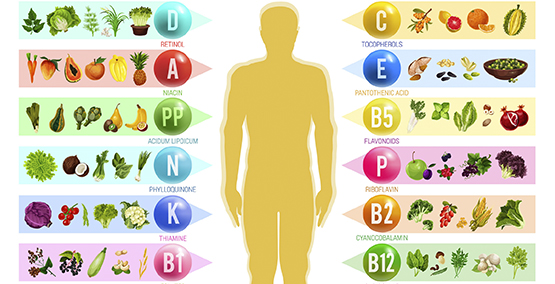
The Latest and greatest treatments for IBD: What to believe
What’s the best IBD medicine for me? Confusion on television and in your inbox....
See moresign up for our newsletter
SubscribeMinerals are just as important as vitamins in IBD. For example, anemia and low bone density are common problems in IBD. The mineral iron helps prevent anemia and calcium (with the help of vitamin D) keeps bones strong and healthy. Other minerals such as magnesium and zinc support the immune system; however, they are often lost due to IBD induced diarrhea.
The table below shows each mineral you need in the diet, its function, and food sources. Nutrition labels list the percentages you need based on a 2000 calorie diet. But your needs may be quite different. If you enter your age and gender, the table will recalculate the amount based on how much you need.
| Mineral | Function | Food sources |
| Calcium | Bone formation, nerve signaling, hormone secretion | Dairy, broccoli, kale, dairy substitutes, fortified cereals |
| Copper | Creation of bone structure, energy metabolism | Seafood |
| Chromium | Sugar metabolism | Meats, fish, grains, Brewer's yeast |
| Fluoride | Strengthening of teeth, bone formation | Fluoridated water, toothpaste, mouth rinses |
| Iron | Transportation of oxygen and energy | Meats, green vegetables, beans, iron-fortified cereals |
| Magnesium | Bone metabolism, metabolic processes | Grains, nuts, leafy vegetables, beans |
| Manganese | Protein and fat metabolism, bone formation | Vegetables, grains, organ meats, beans |
| Potassium | Regulation of fluids in cells, nerve signaling, heart contractions | Fruits (bananas, oranges), vegetables, potatoes |
| Selenium | Antioxidant (similar to vitamin E), part of enzyme system | Vegetables, meats, fruits, milk products, oats, brazil nuts |
| Sodium | Regulation of hydration and fluid in blood vessels | seafood, table salt, processed foods |
| Zinc | Protein and fat formation, processing of genetic codes | Fish, meat, beans |
If you don't get enough of the minerals you need from what you eat, it may be helpful to take a complete multivitamin (just like pregnant women are advised to take a prenatal vitamin). A regular multivitamin gives you most of your needed vitamins. When it says "complete," the minerals you need are also included. Fortunately, a short course of 2-4 weeks of supplementation will raise most mineral levels the levels back to normal.

This article, as well as all others, was reviewed and edited by a member of our Medical Advisory Board.
Subscribe Be the first to know